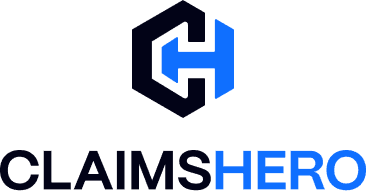Join thousands of Americans who've filed with ClaimsHero.
Contact Uscontact@claimshero.io4435 E. Chandler Blvd.Suite 200Phoenix, AZ 85048
ClaimsHero Holdings LLC is an Arizona Law Firm. This website is governed by Arizona's Rules of Professional Conduct. You are free to choose any lawyer to represent you, the choice of a lawyer is an important decision and should not be based solely on advertisements. There is no guarantee of payment and all cases must be evaluated on an individual basis. Prior results do not guarantee a similar outcome. The information provided on this website does not, and is not intended to, constitute legal advice; instead, all information, content, and materials available on this site are for general informational purposes only.

